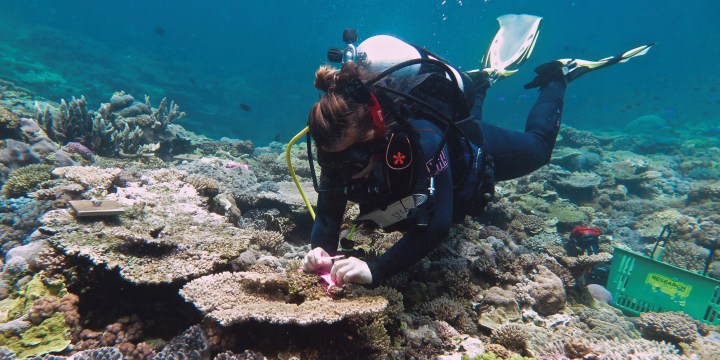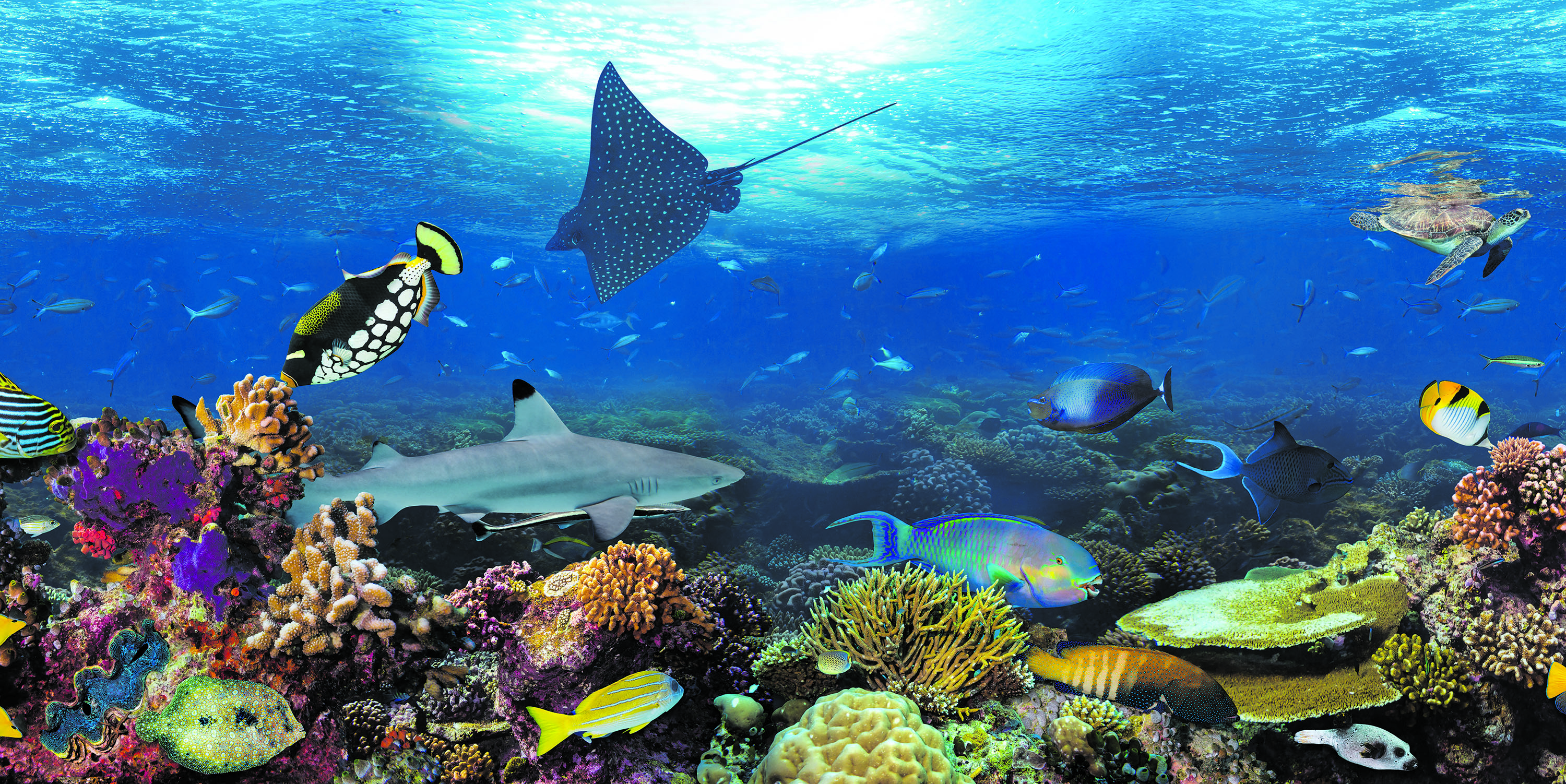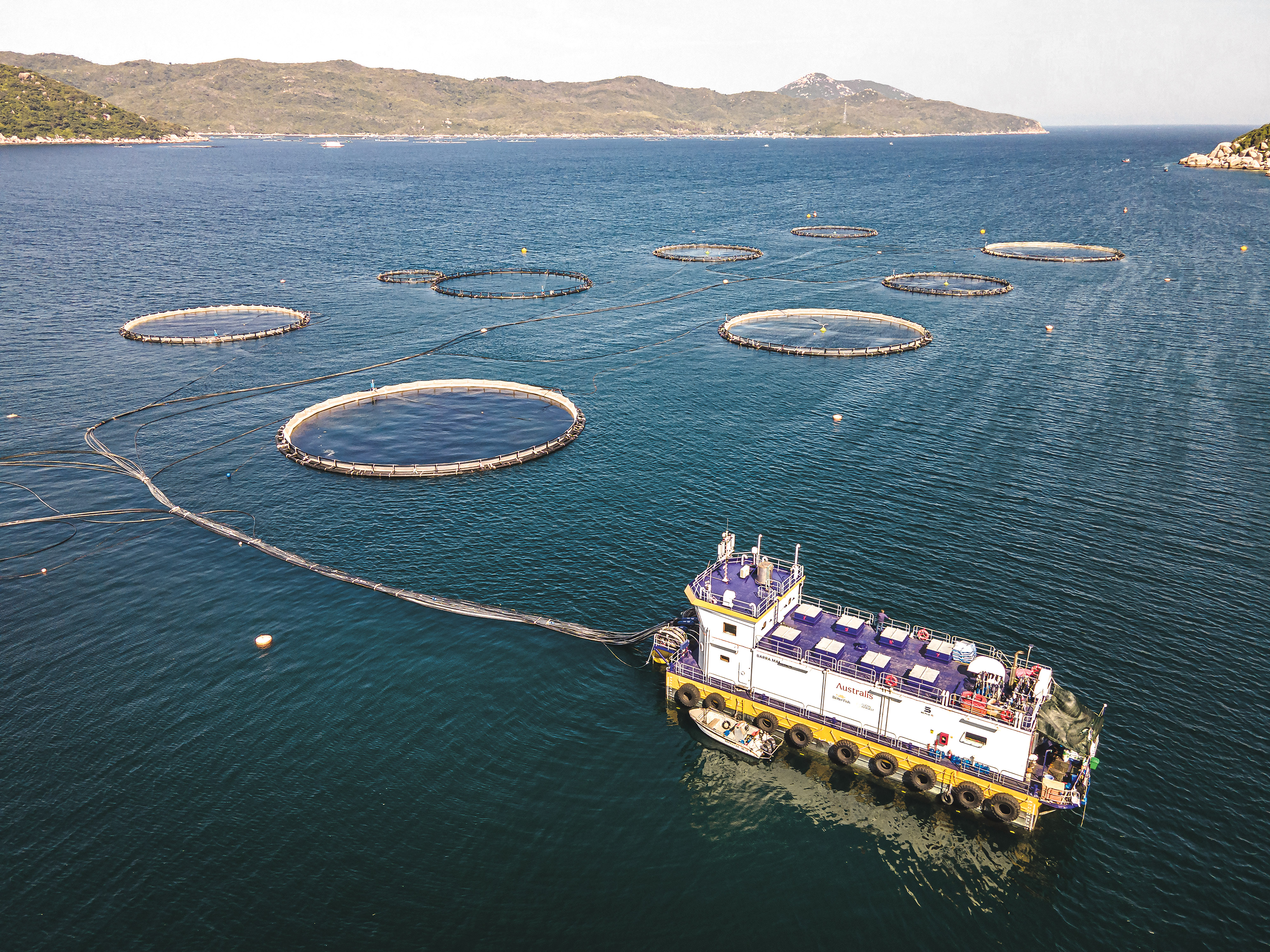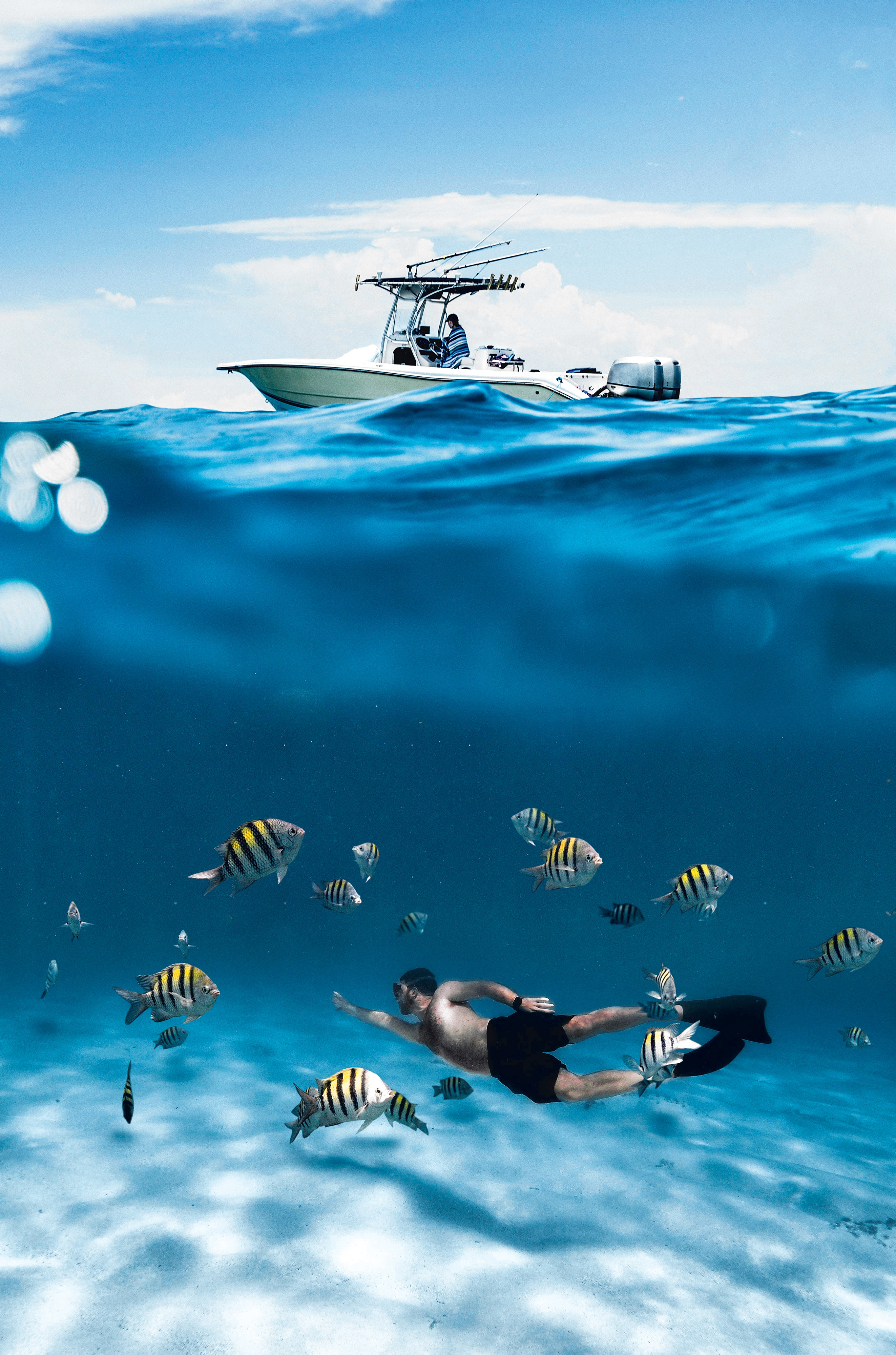MARINE CRISIS
Coral reefs are in deep trouble and our eating habits are making it worse

Fish farming and factory farming on land are worsening the marine ecological crisis. As water temperatures in Florida rise to hot-tub levels, a new study published in a top journal reports that reefs closer to sources of pollution such as aquaculture recover more slowly from damage caused by hot seawater.
Right now a visit to Florida’s famous beaches is akin to taking a dip in a hot tub – with water temperatures in some places reaching into the high 30s. The piping-hot seas are enough to dissuade tourists from taking a dip, but there are other, more worrying dangers too.
Rising temperatures are damaging coral reefs – 14% have already been lost since 2009. What’s worse, human activities such as overfishing and aquaculture are helping to fuel the destruction.
A new study published in the journal Nature highlights the damage that pollution hotspots can cause to these critically important species. Using data collected over 20 years off the coast of Hawaii, researchers tracked how coral reefs fared as temperatures spiked. What they found was that those closer to pollution sources such as aquaculture had fewer fish and were also less resilient to hot water.

Coral reefs are tourism powerhouses as well as being some of the most biodiverse places on Earth. (Photos: iStock)
Researchers could not have predicted the timeliness of their data collection, but it turned out to be prescient. In 2015, reefs in Hawaii were faced with abnormally hot water temperatures, so the researchers were able to track not only how the reefs were affected, but also to measure their recovery in the years that followed.
Whereas healthy reefs have bright colours and diverse marine life, degraded reefs are duller, tend to be broken in more places and may even be bleached white.
For 12 years before and four years after the marine heatwave, researchers studied how reefs in different areas fared. What they found was that those closest to sources of pollution – such as sewage pipes and aquaculture – were already on the decline before the heatwave. These reefs were then harder hit by the higher temperatures and were slower to recover. Meanwhile, in less-polluted areas, reefs fared better – thanks to their cleaner waters and healthier, thriving fish populations.
In other words, curbing sources of pollution, such as factory farming, enables us not only to reduce animal suffering and greenhouse gas emissions, but also to contribute to healthier coral reefs.
Industrial farms: silent coral killers
In Hawaii, major contributors to water pollution are wastewater, sewage, erosion and agriculture. Though the current study focused on other sources of water pollution, animal agriculture plays a major role in water pollution and its damaging after-effects, such as the destruction of coral reefs.

A company boat near a fish farm in Vietnam this month. Aquaculture is a leading cause of pollution near reefs (Photo: Linh Pham/Bloomberg via Getty Images)
One of Hawaii’s major agricultural industries is aquaculture, which reached a record worth of $79.7-million in 2021, an increase of 20% over the previous year. In Hawaii, state waters are leased to private companies for aquaculture within 5km of shore.
Estimates suggest that coral reefs are responsible for goods and services worth $375-billion a year.
Tilapia, catfish and ornamental fish are among the species being farmed, but the state is also notorious for being the location of one of the world’s first octopus farms.
Though an often overlooked source of pollution, fish farms have been linked to considerable ecological destruction. Aquaculture operations are able to release pollutants directly into the water.
Read more in Daily Maverick: Episode 5: How aquaculture is decimating fish stocks in a tiny African nation
According to a Friends of the Earth report, the waste from one facility is equivalent to the raw sewage of 20,000 people, which contributes high levels of excess nutrients to the water.
The phosphorus, nitrates, nitrites and other nutrients that enter the water can prove deadly to numerous species, including coral reefs, encouraging algal blooms that block out light and use up all the oxygen.

Reefs don’t just help tourism-based economies flourish, but also provide important risk mitigation. (Photos: iStock)
Factory farming on land also contributes heavily to water pollution. The animals produce massive amounts of faecal matter – for example, an average of 12 tonnes per cow per year – which runs off into smaller bodies of water or enters the groundwater. Eventually, this water makes its way back into the ocean.
What we stand to lose
Not only are coral reefs home to numerous species, but they protect coastlines, support local economies and play an essential role in a healthy ocean food web, helping biodiverse groups of marine life to thrive.
Coral reefs are some of the most biodiverse places on Earth. The Great Barrier Reef – which is adjacent to the shore and draws roughly five million visitors a year – hosts 9,000 known species. Many of these, such as green sea turtles, are listed as endangered under the Endangered Species Act.

Coral reefs are tourism powerhouses as well as being some of the most biodiverse places on Earth. (Photos: Freepik)
It’s not just fish and other marine life that rely on coral reefs; humans do too. Estimates suggest that coral reefs are responsible for goods and services worth $375-billion a year. Coral reefs are tourism powerhouses – a healthy Great Barrier Reef in Australia supports more than 58,000 jobs, for instance.
Read more in Daily Maverick: Great Barrier Reef threatened, should be on World Heritage ‘in danger’ list, new report finds
Reefs don’t just help tourism-based economies flourish, but also provide important risk mitigation. In the US, coral reefs provide more than $1.8-billion in flood-risk reduction by acting as a barrier between coastal communities and the sea.
Policy change needed
Today, 25 different species of coral are listed under the Endangered Species Act. To protect not just those but all 6,000 species of coral, policymakers need to act, the study’s senior author, Dr Greg Asner, told Phys.org.
For Asner, policy change is a necessary part of the solution: “Only by adopting coupled land-sea policy measures, alongside global reductions in greenhouse gas emissions, will coral reef ecosystems… have the best opportunity for persistence in our changing climate.” DM
This article first appeared on Sentient Media.
Grace Hussain is an avid writer and advocate with a passion for exploring animal rights through a social justice lens. She brings almost a decade of varied experience in the animal rights movement to her work as staff writer at Sentient Media.
This story first appeared in our weekly Daily Maverick 168 newspaper, which is available countrywide for R29.





















 Become an Insider
Become an Insider
To add a simple but compelling truth: It takes 16-20kg of grain to produce 1kg of flesh (meat) from a cow, which can in turn feed two people. That same 16-20kgs of grain can feed 20 people directly. Animal agriculture is spectacularly wasteful and destructive, not to mention immoral. But humanity is too selfish to change their ways for the greater good, and so we have a rapidly worsening climate crisis that is likely to end civilisation as we know it. But who cares, that’s our kids’ problem to deal with.